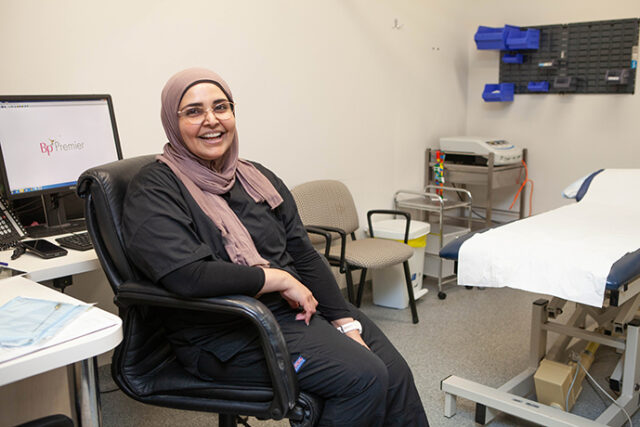While we are in for a wet summer, the UV radiation levels in Penrith can still be dangerously high.
Local experts are debunking the most common sunscreen myths to encourage the community to be sun smart.
Dr Imaan Joshi, from the Australian Skin Cancer Clinic, said a common misconception is that you only have to wear sunscreen when you are spending a full day in the sun.
“Everybody should be putting on sunscreen as a daily thing, not just limited to if you were going to the beach or playing sports outside,” Dr Joshi said.
“We live in a part of the world where the UV rarely goes below three, which is the cut off for wearing sunscreen, so just because it doesn’t feel hot doesn’t mean UV is not penetrating your skin.”
Dr Joshi said sunscreen is purely not enough to protect people’s skin from sun damage.
“The consensus is that up to 80 per cent of sun-related damage can be avoided by using sun protection measures including SPF but SPF isn’t enough,” she said.
“A minimum SPF of 30 is recommended to be regularly applied throughout the daylight hours as well as following slip, slop, slap, seek and slide because protective clothing, a hat and sunglasses is important.”
Cancer Council Community Programs Coordinator for Penrith, Natalia Arnas, said people thinking a lot of sun exposure is needed for vitamin D is also untrue.
“People don’t realise that the few minutes between walking from your car to the shops or hanging the washing outside is more than enough to build up your vitamin D,” she said.
“Skin cancer isn’t something that happens overnight, it gradually builds up so you have to protect yourself whenever you are out.”
Natural sunscreens might seem like a good option but Ms Arnas said they are not recommended to prevent sunburn.
“People are going more towards more natural or organic products but it is better to trust the health experts with manufactured sunscreens and any approved by the TGA is up to a high standard,” she said.
“A lot of moisturisers and cosmetics have an SPF10 or 15 sunscreen included which people think is enough but you should also be applying at SPF30 or 50 to be safe.”
Emily Feszczuk
A graduate of Western Sydney University, Emily covers Local, State and Federal politics for the Weekender, as well as crime and general news.

